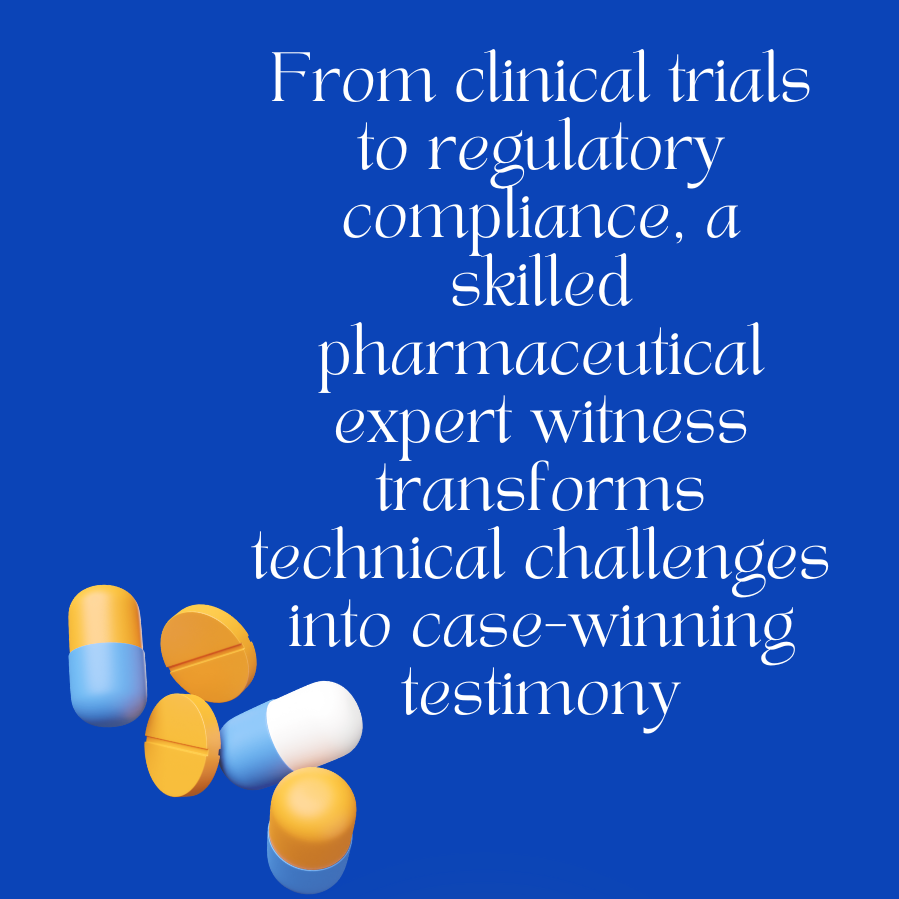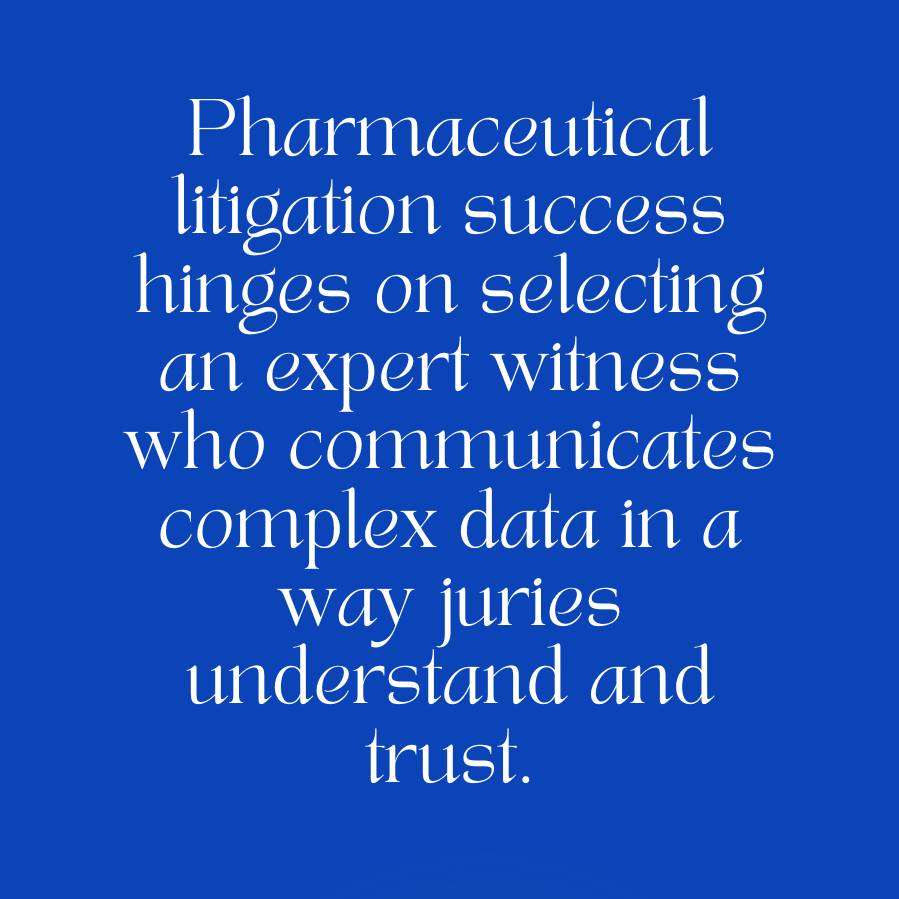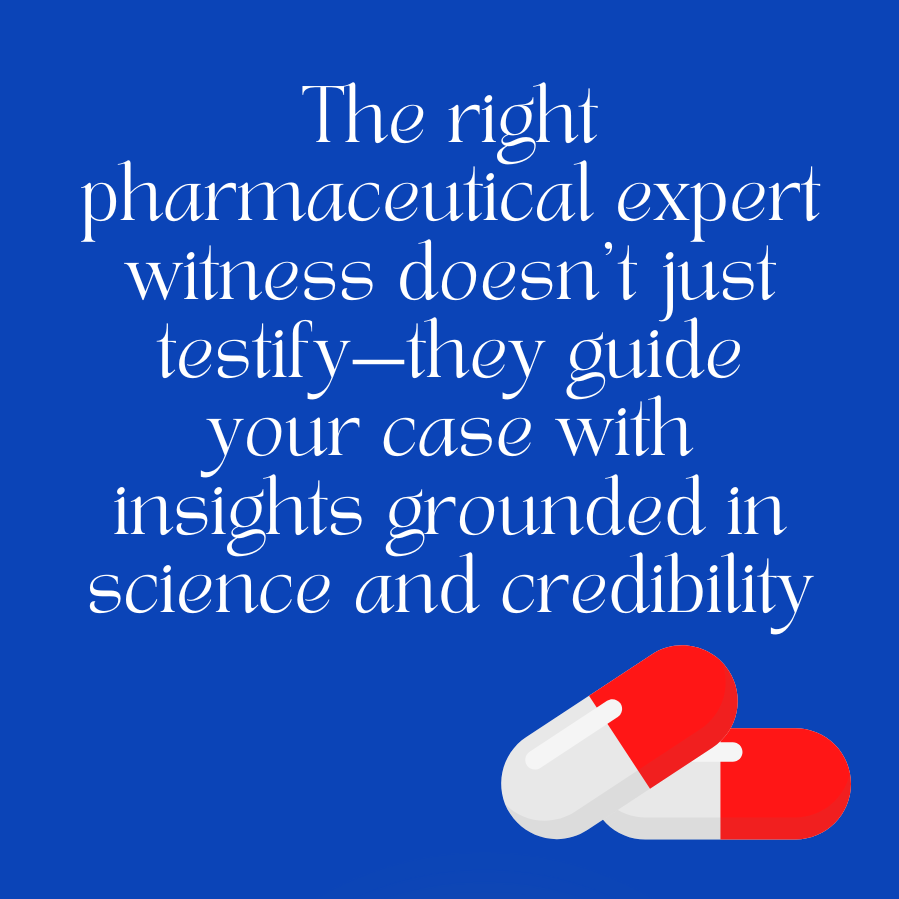Key Qualities of Top-Tier Pharmaceutical Expert Witnesses
When preparing for a pharmaceutical litigation case, selecting the right pharmaceutical expert witnesses can feel like navigating a maze. The complexity of pharmaceutical cases often requires expert witnesses who bring more than just technical knowledge—they need to inspire trust, simplify intricate data, and stand firm under cross-examination. For attorneys, the challenge of finding that perfect expert can weigh heavily, especially when the stakes are so significant for their clients.
In this article, we’ll explore the essential qualities that define a top-tier pharmaceutical expert witness and how attorneys can identify and leverage these experts to build stronger cases.
Why Pharmaceutical Cases Demand Specialized Expert Witnesses
Complexities in Pharmaceutical Litigation
Pharmaceutical litigation often involves cases that hinge on scientific precision, regulatory compliance, and medical expertise. Common types of cases include:
Product liability claims.
Patent disputes involving drug formulations.

False advertising or misbranding allegations.
Expert witnesses in these cases must be able to:
Translate complex scientific research into layman’s terms.
Navigate regulatory frameworks like FDA guidelines.
Address potential safety and efficacy concerns.
Defining the Top-Tier Pharmaceutical Expert Witness
Technical Expertise
Pharmaceutical expert witnesses must have a robust foundation in areas like:
Pharmacology.
Drug development and manufacturing.
Regulatory standards and compliance.
These experts should hold advanced degrees and possess substantial professional experience within the pharmaceutical industry.
Credibility and Courtroom Experience
Experience matters, especially when defending testimony under intense cross-examination. Top-tier experts have:
A history of presenting testimony in similar cases.
The ability to remain composed under pressure.
Strong credentials that hold up to scrutiny.
Example:
In a case involving allegations of adverse drug reactions, a pharmaceutical expert with a history of presenting research studies in court demonstrated how the plaintiff’s claims were inconsistent with established scientific evidence.

Their testimony was pivotal in achieving a favorable verdict.
Communication Skills
No matter how knowledgeable an expert is, their ability to communicate effectively is just as critical. A qualified expert can:
Break down scientific jargon into understandable language.
Explain methodologies in a logical, structured way.
Connect with the judge and jury to make a compelling case.
Impartiality
An expert who appears biased can undermine an attorney’s case. Attorneys should look for witnesses who:
Present findings objectively.
Avoid overstating conclusions or downplaying limitations.
Base their testimony on solid, defensible evidence.
Challenges in Selecting a Pharmaceutical Expert Witness
Limited Pool of Experts
The pharmaceutical field is highly specialized, meaning the pool of qualified expert witnesses is often small. Attorneys may struggle to find experts who:
Have the required knowledge and experience.

Are available within the case timeline.
Balancing Cost and Quality
Highly qualified experts often come with substantial fees. While cost considerations are important, compromising on quality can lead to weaker testimony. Attorneys must weigh the value an expert adds against the litigation budget.
Conflicts of Interest
Given the interconnected nature of the pharmaceutical industry, attorneys must thoroughly vet potential witnesses to ensure there are no conflicts of interest. Failure to do so can lead to challenges from opposing counsel.
Strategies for Selecting the Right Pharmaceutical Expert Witness
Assess Qualifications and Background
Start by reviewing the expert’s:
Academic credentials (e.g., Ph.D., M.D., or similar advanced degrees).
Professional experience in the pharmaceutical industry.
Record of prior testimony in similar cases.
Conduct Mock Interviews
Mock interviews or depositions can help attorneys evaluate how effectively the expert:
Explains complex topics.
Handles challenging questions.
Supports their findings with credible evidence.
Leverage Expert Witness Networks
Expert witness networks provide attorneys with access to pre-vetted professionals who meet stringent qualifications. These services save time and ensure quality, offering:
A curated selection of experts in pharmaceutical litigation.
Detailed profiles with verified credentials.
Support for logistical needs like depositions and trial appearances.
Case Study: A Successful Product Liability Defense
In one high-stakes pharmaceutical case, a manufacturer was accused of distributing a drug with undisclosed side effects. The legal team engaged a pharmaceutical expert specializing in clinical trials and regulatory approval processes. By presenting evidence that the drug’s development and labeling complied with all FDA standards, the expert undermined the plaintiff’s claims and bolstered the defense’s credibility.
Takeaway:
The right expert witness can shift the narrative, presenting facts that support your case while addressing potential weaknesses head-on.
Building a Strong Relationship with Your Expert Witness
Provide Comprehensive Case Materials
Top-tier expert witnesses perform best when they have a thorough understanding of the case. Attorneys should provide:
Relevant medical and regulatory documentation.
Detailed case summaries and objectives.
Data from clinical studies or adverse event reports.
Foster Open Communication
Establishing a clear line of communication ensures that:
The expert understands your legal strategy.
Any questions or concerns are addressed promptly.
Testimony preparation remains aligned with case goals.
Prepare for Cross-Examination
Preparing your expert witness for cross-examination is critical. Practice sessions should focus on:
Anticipating challenging questions from opposing counsel.
Responding calmly and confidently.
Reinforcing the credibility of their findings.
Leveraging Expert Witness Networks for Pharmaceutical Cases
Expert witness networks streamline the selection process, connecting attorneys with highly qualified professionals.
These networks offer:
Access to a diverse pool of specialists in pharmaceuticals.
Vetting processes to ensure the highest standards of quality.
Logistical support, saving attorneys valuable time.
Services like ExpertConnect Litigation Support provide pre-screened experts with proven track records, helping attorneys build stronger, more credible cases.
Conclusion: Elevating Your Case with the Right Expert Witness
Pharmaceutical litigation demands precision, credibility, and expertise. A top-tier pharmaceutical expert witness brings these qualities to the courtroom, offering clear, compelling testimony that supports your arguments.
By thoroughly vetting experts, collaborating effectively, and leveraging professional networks, attorneys can enhance their litigation strategy and achieve better outcomes for their clients. Whether it’s a patent dispute or a product liability case, the right expert witness can be the difference between a favorable resolution and a missed opportunity.
For attorneys seeking trusted pharmaceutical experts, services like ExpertConnect Litigation Support can simplify the process, providing access to qualified pharmaceutical expert witnesses who meet the unique demands of your case.